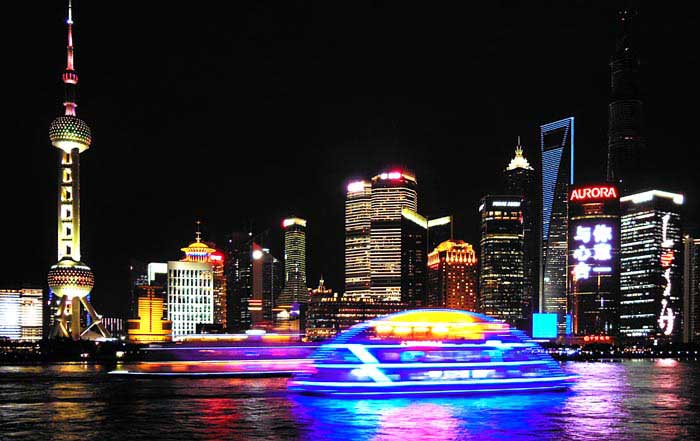China is being watched carefully by global leader for every of China's foreign and economic policies and moves. Every foreign investors and expatriates are influenced by private views molded from their country, geographical region and political opinions. Security developments in China are different and that makes relations between the other parts of the world under pressure. There are safety concerns due to China's rising economic power. Many welcome the accomplishment that had pulled the world's growth. However, most Americans view it as a threatening situation to their own country's world standing. European citizens do not view China as a political threat but have similar concerns that China may forcefully preach their own development values. Most of the world do not see it as threatening, but there is diverse views among the people of world.
About 60% of Americans were concerned on China's rising might in economic power and about 75% think it is no trustworthy. China may have been though to contribute to US trade deficits and capturing the labor markets with low wages offered. Many filed complaints with WTO on China's perceived unfair subsidized export markets. US has used to basis for non-exclusion of China in the Trans Pacific Partnerships. On a side interesting note, Chinese people are fond of US, with surveys showing Chinese people admiring American innovative values and scientific achievements. US had an overwhelming advantage in exercising its subtle power image to complement its military might.
The perception for US and China relationship is influenced by economic trends. China emerged as the world's biggest trading country at the same time America is nursing from economic injury and recovering slowly from the 2008 subprime financial crisis. Europe was soon having fiscal budget issues around 2011. Gallup polls revealed that most Americans held the belief that China is the biggest economy in the world. It was completely different in 2000 where only 10% of American people thought China as the top while a huge 65% majority thought US as the top. Americans has good rating for China up till 2010. Sentiments turned for the worse as China becomes more aggressive in island dispute and negotiations. U.S. is seeking to rebalance its power and influence in Asia. Other parts of the globe sees US as main economic power and most Asian nations held the same view. Europe thinks it is otherwise by supporting China as the top economic superpower.
China's strong trade balance is the main reason U.S. and Europe views China as the top economic superpower. China has large trade surpluses against U.S. and Europe. However it has had trade deficits with other parts of the world, in particular commodity producers and Eastern Asian neighbors. There are considerable insecurity in the Western regions on their competitiveness. A country's true measure of economic resilience is more from its institutional quality and human capital development, which is represented more by GDP per capita and less by trade balance amount. China has only a GDP per capita ranking of 80 compared to world and not ready to take pole position.
Europeans have a more positive feelings for China compared to U.S. as there is lower power rivalry. They are also trying to avoid U.S. linked initiatives. There is wide perception difference between official opinions and popular opinions in Western Europe. Chinese and German economic relationship seem to be the strongest in Europe, but surveys showed that German public are less positive about China, perhaps due to cultural differences. Many would have the view that British would view China in an unfavorable light caused by Hong Kong's treatment by China and trade deficits that are large. In actual reality, there are extensive personal interactions built upon by tourism and financial links. Britain took the first initiative within EU to join China led Asian Infrastructure Investments Bank.
Outside of Europe and U.S., there are diverse views on China. It varies significantly by region and time period. After the Asia Financial Crisis, views on China become less favorable by Asian nations when they provided economic support. Island dispute dominate the headline in today's time. Latin America and African economy enjoyed good growth led by China's rise, but a slowdown is dimming their prospects. Public perception towards China is shaped by foreign and economic policy concerns. China has a huge challenge to deal with the complicated relationships when the whole world is slowing down economically.

